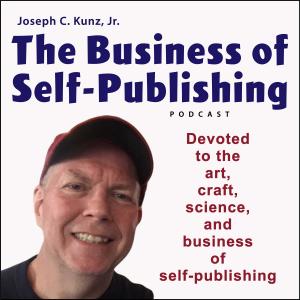The Business of Self-Publishing

4 Basic Content-Sharing Etiquette-Rules
Updated February 18, 2023
Subtitle
Sharing the work of others comes with responsibilities that cannot be taken lightly
Synopsis
All content creators and authors want their work to be shared. But taking too much information and content from them can become a problem for you and the original author. This sharing is especially true if you take credit for someone else’s work or don’t credit them appropriately. Here are the basic rules, as I see them, you need to follow.
What You Will Learn
1. You will learn my four basic rules for sharing another author’s content.
2. You will learn why linking to another author or providing backlinks is imperative.
3. You will learn some of the fundamental ways you should not be claiming the work of others as your own.
Introduction
Sharing content is expected. The entire internet is about sharing content. If you would like to share, use, or copy the author’s content or work on your website, article, blog post, book, etc., that’s great. It’ll help that author expand their audience, and it will help you and your audience too.
I’ve made a list of some ways that my content is taken and used without giving me any credit, or not the proper credit, for my work. Many of these offenders don’t even include a backlink to my website. I’m sure many of you have had these same things happen to you too.
Here are the basic rules, as I see them, you need to follow:
Content Sharing Etiquette Rule # 1:
Use the Author’s Name as They Use It
a. You must display the author’s name as they use it on their own online and in-print work.
If the author’s name is Joseph C. Smith, Jr., don’t re-write it as Joe Smith. Or as Joe Smithjr. The author has a reason to write his name as he does, and you should respect that.
Content Sharing Etiquette Rule # 2:
You Must Include a Backlink to the Original Author
a. If you share or use another’s online content, such as you might find on their website or blog, a link back to the author’s website or blog is mandatory. Simply including their name is not enough. Backlinks are a significant part of blogging. You want backlinks to your work, and so does the author whose work you use.
Content Sharing Etiquette Rule # 3:
You Must Notify the Original Author
a. Notifying the author is mandatory if you share or use their content in your book, ebook, or print.
b. Sending the author an email letting them know you used their content in your book is expected. It is common courtesy and a sign of respect.
c. The original author can let readers see how and where his content is shared. This respect is how you succeed as an author, blogger, and businessperson. It’s a win-win-win for all involved.
Content Sharing Etiquette Rule # 4:
Don’t Put Your Name On Something You Didn’t Create
a. You cannot re-post an author’s content and add your name as a co-author.
b. You cannot re-post an author’s content, then delete their name, and sign your name to it, claiming it is your work.
c. You cannot re-arrange the paragraphs and then claim the original author’s work as yours.
d. You cannot re-post an author’s content, word-for-word, and then claim it as your work by simply changing the title.
e. You cannot re-post an author’s content word-for-word, add a few paragraphs, and then claim it as your work.
All of these are outright stealing and copyright infringement. Doing any of this but adding a backlink to the original author does not make it any less creepy and underhanded.
Conclusion
These simple rules will help you stay out of trouble and maintain self-respect. And these rules will help you build good relationships with other content creators and authors. When you show others respect, courtesy, and fairness, they (I should say “many”), in turn, will show you the same. It can, and should be, a win-win for both authors and their respective audiences.
Questions to Think About
1. Do you have any personal rules about sharing the work of others?
2. In what clever or silly ways has your content been stolen or repurposed?






 Visit Podcast Website
Visit Podcast Website RSS Podcast Feed
RSS Podcast Feed Subscribe
Subscribe
 Add to MyCast
Add to MyCast